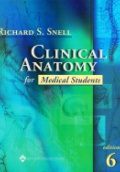Renewables–Based Technology: Sustainability Assessment
Jo Dewulf,Herman Van Langenhove
ISBN: 9780470022412
Vydavatelství: Wiley
Rok vydání: 2006
Vazba: Hardback
Počet stran: 384
Dostupnost: Skladem
Původní cena: 4 877 Kč
Výstavní cena:
3 658 Kč(t.j. po slevě 25%)
(Cena je uvedena včetně 10% DPH)
Katalogová cena: 116 GBP
Nárok na
dopravu zdarma
Termín dodání na naši pobočku v Brně je přibližně 3-4 týdny.
The concepts ?renewable recources? and ?sustainability? are receiving much attention by academia, governments and industry. With the current rate of consumption we have fossil oil reserves left for 40 years. Renewable resources are of key importance for the development of a sustainable society and it is vital that governmental and business decision–makers are equiped with adequate assessment tools. Renewables–Based Technology: Sustainability Assessment brings together and evaluates the main sustainability assessment methods and techniques in one volume. Structured into three main section, Part One introduces the quantitative assessment of renewables, their potential as feedstock for industry, and an overview of sustainability performance indicators. Part Two introduces the key sustainability methods and techniques that are currently used. Part Three contextualises these methods by providing case studies that are set within the major industries benefiting from renewables. Links the two issues of sustainability assessment and renewable resources. Includes case studies from the major industries that can benefit from using renewable resources, such as agriculture, biotechnology, food packaging, energy–biofuel, bio–polymer, bio–pharmaceutical and organic waste treatment. Written by a global team of authors from academia, governmental departments, research centres and international companies. This book will be a main source of information for professionals from a range of agricultural, chemistry, chemical and process industries. Also researchers within departments of agriculture, chemistry, chemical engineering, food technology, environmental technology, who are looking at sustainability or clean technology issues.It will also be a valuable reference for upper–level undergraduate and Master students.
